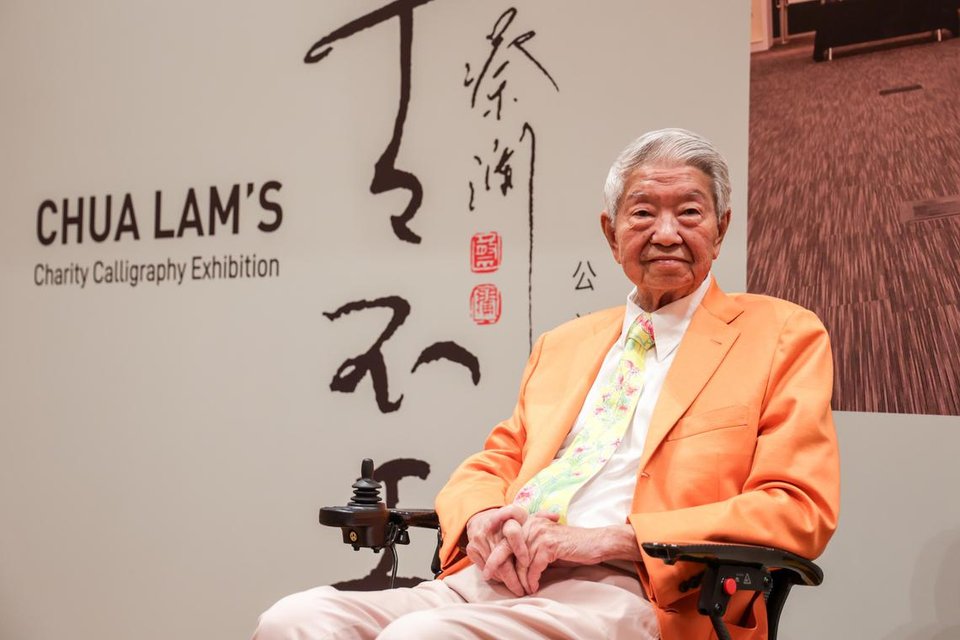In the silence left by Chua Lam’s passing, we turn to the voices of old—to poets who understood the alchemy of savor and story—to honor a man who made cuisine a language.
“山高月更明,人老情更浓。” (Sān gāo yuè gèng míng, rén lǎo qíng gèng nóng.)
“The mountains are high, the moon yet brighter; the man grown old, his feelings yet deeper.”
—Su Shi, Song Dynasty
Thus did Chua Lam dwell—the higher he rose, the clearer his vision; the older he became, the fiercer his devotion to the ephemeral joys of a dish, a film, a shared bowl. Born in Singapore’s humid embrace, he carried its street hawkers’ songs to Hong Kong’s neon-lit alleys, his life a bridge between worlds: Tokyo’s cinematic studios, New York’s restless streets, and the kitchens where steam carried history.
Like a monk-poet tracing the arc of a teacup, Chua found universality in the mundane. His columns—over 150 books—were odes to the quotidian: a dumpling’s pleats, the crackle of roasted goose skin, the way broth could bind generations. His films, too, hummed with this philosophy: Armour Of God, City Hunter—tales of chaos and order, laughter and loss, all scored to the percussive clatter of wooden ladles against woks.
“文章千古事,得失寸心知。” (Wénzhāng qiān gǔ shì, dé shī cùn xīn zhī.)
“Literature is an enterprise of a thousand years; its gains and losses are known in the heart of an inch.”
—Du Fu, Tang Dynasty
A writer’s labor is to distill eternity into a sentence, just as a chef coaxes essence from bone and herb. Chua mastered both arts. His television shows—Market Trotter, Chua’s Choice—were pilgrimages, each episode a haiku of hunger and harmony. Even as frailty crept into his later years, he cooked without fuss, ate without pretense, a modern disciple of Confucius:
“食不厌精,脍不厌细。” (Shí bù yàn jīng, kuài bù yàn xì.)
“Let food be finely prepared; let meats be cut with care.”
—Confucius, Analects
He was the last of the Four Great Talents—guardian of a lost era. James Wong’s melodies, Louis Cha’s martial rivers, Ni Kuang’s sci-fi constellations—all eclipsed. Yet Chua’s palate remained a compass: unerring, insatiable.
“诗酒趁年华” (Shī jiǔ chèn nián huá)
“For wine and verse, seize youth while it lasts.”
—Su Shi, Song Dynasty
He seized not just youth but every moment—a man who knew that to taste deeply was to live eternally. In 2023, wheelchair-bound yet undimmed, he curated his Charity Calligraphy Exhibition in Singapore, his brushstrokes as deliberate as his critiques. When Death came knocking, he greeted him as an old companion, preferring privacy over fanfare, dust to drama.
In the spirit of Yang di-Pertuan Negara Yusof Ishak, whose hands once cradled a fractured nation and wove unity from its many threads, Chua Lam’s feast endures—not as relic, but as bridge. He, too, was a cartographer of culture: mapping dialects in dumplings, histories in hand-pulled noodles, and the quiet dignity of a hawker’s craft.
Where Yusof Ishak’s State Palace once welcomed divisions of language, faith, and origin, Chua’s table did the same—without banners, only bowls. Though frailty shadowed his final years, his pen never quavered; in ink, he built a kitchen beyond borders, where Singapore’s laksa met Sichuan’s mapo tofu, and Hong Kong’s roasted meats echoed Kyoto’s kaiseki.
The river of time flows turbulent. Yet like Yusof’s legacy—a nation forged in diversity—Chua’s feast resists erasure. His ink remains warm. His world, unbroken.



